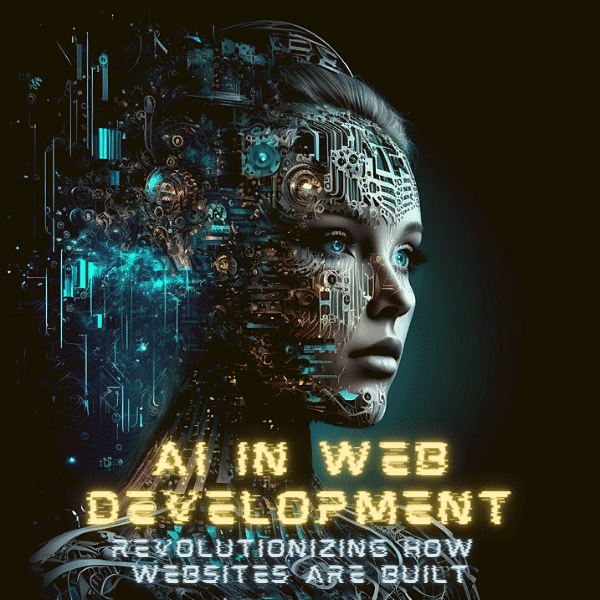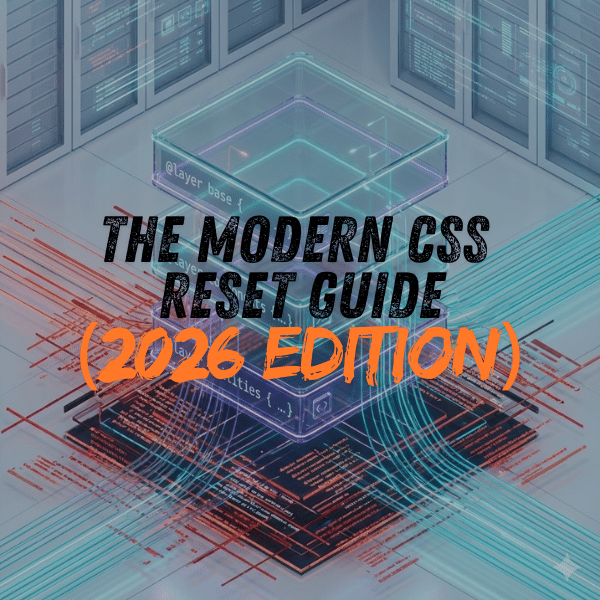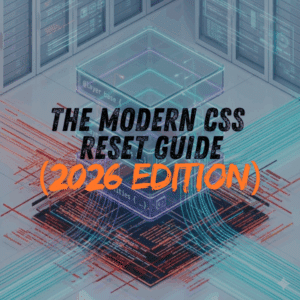Why you can trust Sunlight Media
- Expertise and Experience:Our content is crafted by seasoned professionals with extensive experience in digital marketing, ensuring you receive accurate and actionable advice.
- Unbiased Information:We provide impartial insights and recommendations based solely on what's best for your business, without any hidden agendas or promotions.
- Thorough Research:Our articles are backed by comprehensive research and the latest industry trends, ensuring you stay informed with reliable and up-to-date information.
- Transparency and Honesty:We believe in complete transparency. We disclose our sources, methodologies, and any potential conflicts of interest, so you can trust the integrity of our content.
- Continuous Improvement:We constantly review and update our content to reflect the latest developments in digital marketing, so you always have access to the most current and relevant information.

This blog post explores how AI is transforming the web development industry, enhancing efficiency, and unlocking new possibilities.
Firstly, AI tools simplify complex tasks, streamlining the development process. By automating repetitive tasks, developers save time and resources, increasing overall productivity.
Secondly, AI-powered chatbots and virtual assistants enhance user experience. They provide instant support and guidance, reducing response times and improving customer satisfaction.
Moreover, AI-driven design tools create visually appealing websites. They analyze user preferences and styles, generating unique and eye-catching designs that resonate with users.
Additionally, AI enables personalized user experiences. AI systems can tailor content and recommendations by analyzing user behavior, increasing engagement and conversion rates.
Lastly, AI improves website performance, optimizing elements like images and fonts for faster page load times. This results in a better user experience and higher search engine rankings.
Continue reading to learn how AI revolutionizes web development, offering greater efficiency and unlocking new potential for creating engaging, user-friendly websites.
AI-Driven Automated Design: Creating Visually Appealing Websites
This section will delve into how AI-driven automated design tools revolutionize how websites are built, allowing for visually appealing and optimized designs.
Firstly, AI-powered design tools are capable of understanding user preferences and styles. They analyze vast amounts of data from various sources to identify patterns and trends in web design. By applying this knowledge, AI tools can create unique and visually stunning designs that resonate with users.
Secondly, these tools can save time and effort for web developers. Instead of manually creating layouts and designs from scratch, AI tools can generate multiple design options in minutes. Developers can then choose the most suitable option and make necessary adjustments, allowing them to focus on other aspects of web development.
Moreover, AI-driven design tools can optimize designs for various devices and screen sizes. As users access websites on multiple devices, ensuring a seamless experience is crucial. AI tools can adapt layouts and elements to fit any screen, providing a smooth browsing experience for all users.
Lastly, these tools can also improve website performance. AI-driven design optimization can ensure that elements like images and fonts are loaded efficiently, reducing page load times. Faster websites improve user experience and contribute to higher search engine rankings.
In conclusion, AI-driven automated design tools are transforming the web development landscape. They enable the creation of visually appealing and optimized websites with minimal effort, allowing web developers to focus on more strategic tasks.
AI-Driven Content Generation and Optimization: Taking Content to the Next Level
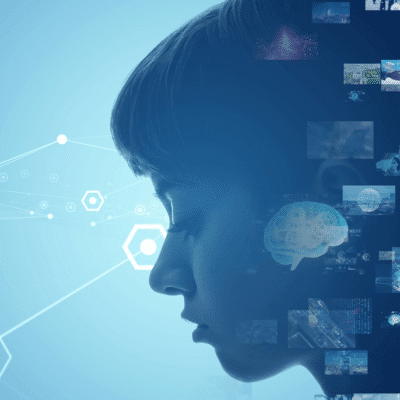
First and foremost, AI-powered content generation tools make the process faster and more efficient. Using natural language processing (NLP), these tools can produce high-quality content in seconds, saving valuable time for writers and developers.
Additionally, AI can optimize existing content for better search engine rankings. By analyzing keyword density, readability, and other SEO factors, AI tools can suggest improvements that boost visibility and drive more traffic to a website.
AI has also made significant strides in video content creation, offering various tools and technologies in AI video editing to assist creators in different aspects of the process. It includes scriptwriting, automated video editing, voiceovers, and narrations, and finally enhancement and optimizations.
Another key benefit is the ability of AI to create personalized content for each user. By analyzing user behavior, interests, and preferences, AI systems can tailor content to create a more engaging and relevant experience, ultimately increasing conversion rates and customer satisfaction.
Furthermore, AI can help identify trending topics and keywords in a particular industry. Developers can create relevant and appealing content for their target audience by staying updated with current trends.
Moreover, AI tools can detect and correct grammar, spelling, and punctuation errors, ensuring the content is polished and professional.
For businesses looking to integrate AI tools into their workflows, partnering with experienced software development professionals can help ensure that AI applications are seamlessly incorporated into your web infrastructure.
In conclusion, AI-driven content generation and optimization transform how websites are built, offering enhanced efficiency, personalization, and quality. This leads to a more engaging and effective online presence for businesses and organizations.
Enhancing User Experience through Personalization
In this section, we’ll explore the role of AI in elevating user experience by providing personalized content and interactions on websites.
To begin with, AI-powered personalization tools can analyze large amounts of user data, such as browsing history, location, and device type, to create customized experiences for individual visitors. This allows businesses to cater to each user’s unique needs and preferences, making their website experience more enjoyable and relevant.
One significant aspect of personalization is dynamic content. AI algorithms can modify the content displayed on a webpage based on user behavior and preferences, ensuring that the information presented is always relevant and engaging.
Moreover, AI-driven personalization extends beyond content to include recommendations. By analyzing user behavior and preferences, AI tools can suggest products, services, or content that align with users’ interests, increasing the likelihood of conversion and customer satisfaction.
Another essential factor is personalized communication. AI chatbots and virtual assistants can offer tailored interactions and support, addressing users’ needs and concerns. This enhances the user experience and helps businesses deliver efficient and effective customer service.
Furthermore, AI can assist in optimizing web design elements, such as layout and color schemes, based on user preferences and behavior. This level of customization contributes to an immersive and aesthetically pleasing browsing experience.
AI-powered personalization is revolutionizing user experience in web development by offering tailored content, recommendations, and interactions. These customized experiences increase user engagement and contribute to higher conversion rates and customer satisfaction.
Harnessing the Power of Chatbots and Virtual Assistants
In this part, we’ll delve into the growing significance of AI chatbots and virtual assistants in web development and how they transform customer interaction and support.
Firstly, AI chatbots and virtual assistants enable businesses to provide instant customer support. By automating responses to common queries and concerns, these tools save time and resources, allowing companies to focus on more complex issues.
Moreover, AI-powered chatbots can learn from user interactions, improving their ability to handle inquiries over time. This continuous learning process leads to increasingly efficient and accurate customer support, enhancing the overall user experience.
Another critical aspect is integrating natural language processing (NLP) technology in chatbots. NLP allows chatbots to understand and interpret human language, making interactions more conversational and engaging. Consequently, users are more likely to feel comfortable and satisfied with their support experience.
Chatbots and virtual assistants can also be programmed to perform various tasks, such as appointment scheduling, order processing, and providing personalized recommendations. This multi-functionality not only improves user experience but also streamlines business operations.
Furthermore, chatbots can be easily integrated into multiple platforms, such as websites, social media, and messaging apps. This ensures that businesses can deliver consistent and accessible support across various channels, meeting customers where they’re most active.
AI chatbots and virtual assistants play a crucial role in web development by providing users with quick, efficient, and personalized support. Their ability to learn from interactions, understand human language, and perform multiple tasks makes them invaluable assets for businesses seeking to improve user experience and streamline operations.
Streamlining Website Maintenance with AI Tools
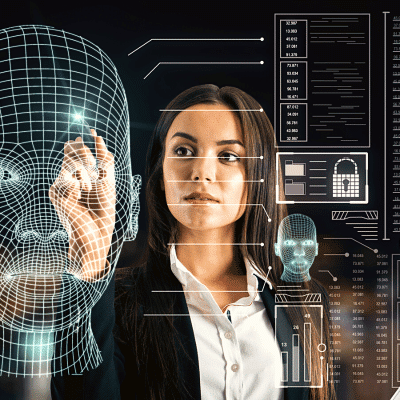
Firstly, AI-driven analytics tools monitor website performance and pinpoint potential issues before they become more significant problems. Detecting anomalies in traffic patterns or server loads, these tools allow developers to proactively address concerns and maintain optimal site performance.
Moreover, AI helps optimize website resources like images and code. Automating tasks such as image compression and code minification, AI tools reduce file sizes, improve page load times, and contribute to a better user experience and potentially higher search engine rankings.
AI-powered security solutions also play a crucial role in protecting websites from cyber threats. These tools use machine learning algorithms to identify and neutralize potential attacks like Distributed Denial of Service (DDoS) and malware infiltration. This proactive security approach reduces the risk of data breaches and website downtime.
Another benefit of AI in website maintenance is automating content updates. AI algorithms analyze and detect outdated content, prompting developers to make necessary revisions. This ensures websites stay current and relevant, ultimately enhancing user experience.
Lastly, AI simplifies website accessibility compliance. By scanning websites for possible accessibility issues and offering automated suggestions, AI tools make it easier for developers to follow accessibility standards, ensuring a more inclusive user experience.
AI plays a critical role in streamlining website maintenance. By proactively identifying performance issues, optimizing resources, strengthening security, automating content updates, and ensuring accessibility compliance, AI-powered tools help developers create more efficient, user-friendly, and secure websites.
The Role of Machine Learning in Web Accessibility
Identifying Accessibility Issues
Machine learning algorithms help find accessibility issues on websites. They analyze a site’s structure and content to detect barriers for users with disabilities. Developers can then fix these issues to improve accessibility.
AI-powered Assistive Technologies
Machine learning enables the development of assistive technologies for users with disabilities. Text-to-speech applications help users with visual impairments, while speech-to-text tools assist users with hearing impairments.
Predictive Text and Autocomplete Features
Machine learning improves predictive text and autocompletes features. These tools help users with mobility impairments or cognitive disabilities to communicate more efficiently, promoting a more inclusive online environment.
Personalized Accessibility Features
AI-driven algorithms analyze user behaviors and preferences to deliver personalized accessibility features, such as custom font sizes or navigation options. This personalization ensures that websites meet the diverse needs of their users.
Continuous Monitoring of Web Accessibility
Machine learning facilitates ongoing monitoring of web accessibility. As website content and features evolve, AI algorithms evaluate and flag potential accessibility issues, enabling developers to maintain compliance and adapt to users’ changing needs.
Machine learning plays a vital role in enhancing web accessibility. By identifying issues, enabling assistive technologies, providing personalized experiences, and promoting continuous monitoring, developers can create more inclusive websites for all users.
AI-Enhanced SEO: Smarter Strategies for Online Visibility
Artificial intelligence helps analyze vast amounts of data to understand user intent better. By examining search queries, AI can identify trends and patterns, enabling marketers to optimize their content to match users’ needs and improve search rankings.
AI-driven tools streamline keyword research by analyzing search data, competitor websites, and user behavior. These tools can suggest relevant keywords, allowing marketers to focus on creating high-quality content that aligns with their target audience’s interests.
Artificial intelligence can assist in optimizing content for search engines. AI algorithms analyze existing content and provide recommendations on improving readability, keyword usage, and other SEO factors to increase a website’s visibility in search results.
AI-enhanced analytics tools offer deeper insights into website performance and user behavior. By identifying patterns and trends, these tools help marketers make data-driven decisions that drive traffic and improve conversion rates.
AI-driven tools can predict changes in search engine algorithms and user behavior, enabling marketers to adapt their SEO strategies proactively. This forward-thinking approach helps maintain high search rankings even as the online landscape evolves.
In summary, AI-enhanced SEO strategies offer more ingenious ways to improve online visibility. By understanding user intent, automating keyword research, optimizing content, leveraging AI-powered analytics, and adopting the predictive strategy, marketers can stay ahead of the competition and achieve tremendous success in the ever-changing digital world.
Improving Web Performance with AI-Powered Analytics

Identifying Performance Bottlenecks
AI algorithms can detect performance bottlenecks, such as slow-loading pages or high bounce rates. By pinpointing these issues, web developers can optimize their websites to enhance user experience and retain visitors.
Predictive Performance Analysis
AI-driven analytics tools can predict potential performance issues before they become a problem. This proactive approach allows developers to address issues in advance, ensuring smooth website performance and minimizing the impact on user experience.
Image Optimization with AI
Artificial intelligence can help optimize website images, improving load times without compromising visual quality. AI algorithms can intelligently compress and resize images, resulting in faster-loading pages and an improved user experience.
Personalized Performance Recommendations
AI-powered analytics tools can provide personalized performance recommendations based on user behavior, device type, and other factors. These insights help developers tailor their websites to meet the unique needs of their audience, resulting in better performance and user satisfaction.
AI-powered analytics play a crucial role in improving web performance. By offering real-time data analysis, identifying performance bottlenecks, predicting potential issues, optimizing images, and providing personalized recommendations, these tools enable developers to create websites that perform exceptionally well, leading to enhanced user experiences and increased engagement.
Ensuring Data Privacy and Security with AI Solutions
AI-driven security tools can identify and prevent cyber threats by analyzing patterns and behaviors. By continuously learning from past incidents, these tools can proactively detect and block potential attacks, ensuring your website’s and user data’s safety.
AI-powered security solutions can automate the process of security audits. They can quickly scan your website for vulnerabilities, such as outdated software or weak passwords, and recommend strengthening your security measures.
Artificial intelligence can help protect user privacy by anonymizing data. AI algorithms can identify and remove personally identifiable information (PII), ensuring that user data remains private and secure.
AI-driven security solutions can analyze user behavior to detect suspicious activity. By monitoring login attempts, site navigation patterns, and other user actions, these tools can identify potential security threats and take appropriate action to protect your website and user data.
As new security threats and challenges arise, AI-powered solutions can rapidly adapt to protect your website. By continuously learning from data and staying up-to-date with the latest security trends, AI-driven security tools can ensure your website remains safe and secure.
AI solutions play a vital role in ensuring website data privacy and security. By detecting and preventing cyber threats, automating security audits, protecting user privacy, analyzing user behavior, and adapting to emerging challenges, AI-driven security tools help safeguard your website and user data, providing peace of mind for you and your users.
The Future of AI in Web Development: Trends and Predictions
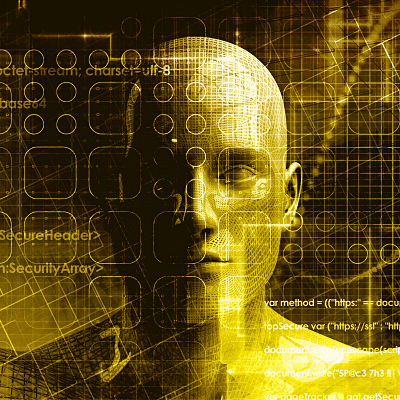
We can expect AI-driven design tools and development platforms to work together seamlessly. AI will play a key role in improving communication between designers and developers, creating more cohesive and user-friendly websites.
As AI advances, we can expect sophisticated website personalization and customization features. AI-powered systems will accurately predict user preferences and behavior, allowing tailored experiences catering to individual users’ needs and interests.
Voice assistants and chatbots will evolve, becoming more intelligent and handling complex tasks. This will lead to more sophisticated conversational interfaces, enabling websites to engage with users effectively and provide better customer support.
With the growth of AI in web development, addressing ethical and responsible AI implementation is crucial. This includes ensuring data privacy, preventing bias in AI algorithms, and promoting transparency in AI decision-making. The web development community must prioritize these concerns to ensure responsible AI use in website creation and management.
The future of AI in web development is full of exciting possibilities and challenges. The growth of no-code and low-code platforms, improved collaboration between designers and developers, advanced personalization, more thoughtful voice assistants and chatbots, and a focus on ethical and responsible AI implementation will shape website building and maintenance. As AI revolutionizes web development, developers and businesses must stay informed and adapt to these emerging trends.
Getting Started with AI in Web Development: Helpful Tools and Resources
To integrate AI into web development, explore AI-powered design platforms like Wix ADI, Firedrop, and The Grid. These platforms use artificial intelligence to create visually appealing and functional website designs, taking into account user preferences and goals.
AI-Driven Content Generation Tools
Tools like Copy.ai, Jasper, and Articoolo are excellent for generating content using AI algorithms. They can create engaging and well-structured content for web pages, saving time and effort while maintaining quality.
Chatbot and Voice Assistant Builders
To harness the power of AI for conversational interfaces, explore chatbot and voice assistant builders like Dialogflow, Botpress, and Amazon Lex. These tools enable developers to create intelligent chatbots and voice assistants for websites, enhancing user interaction and support.
AI-Powered Analytics and SEO Tools
For improving web performance, consider AI-powered analytics and SEO tools like Google Analytics, Market Brew, and Alli AI. These tools provide valuable insights into website performance and user behavior, allowing developers to optimize their websites for better online visibility and user experience.
Machine Learning Libraries and Frameworks
To dive deeper into AI and machine learning, explore libraries and frameworks like TensorFlow, PyTorch, and Scikit-learn. These resources offer comprehensive toolkits for developers to create custom AI solutions for their web projects.
Online Courses and Tutorials
Lastly, to learn more about AI and its application in web development, enroll in online courses or follow tutorials from reputable sources like Coursera, Udacity, or YouTube channels specializing in AI and web development.
Beginning with AI in web development involves exploring various AI-powered tools, platforms, and resources. By utilizing these resources, web developers can integrate AI into their projects, transforming how websites are built and maintained for the better.
Conclusion
In conclusion, AI is changing how websites are built, maintained, and optimized. It enhances user experience through personalization and streamlines website maintenance. Moreover, AI improves web performance and ensures data privacy and security.
As AI advances, we can expect more innovative applications and trends, transforming web development further. Web developers can stay ahead of the curve by embracing AI technologies and staying informed about the latest tools. Thus, they can create modern, user-friendly websites that offer an exceptional online experience.

